Tony Bennett, onetime Englewood resident, leaves music and memories with his passing
- Oops!Something went wrong.Please try again later.
- Oops!Something went wrong.Please try again later.
- Oops!Something went wrong.Please try again later.
Tony Bennett lived in Englewood from 1957 to 1971. But he didn't like to talk about it.
"I consider myself a citizen of the world," he once told The Record.
And he was a citizen of the world — traveling everywhere from Vienna to Copenhagen to Denmark to Perugia to Montreaux to Monaco to Las Vegas. And wherever he went, Bennett — who died Friday at age 96 — brought music. And class.
"The world has lost an icon, and I lost a friend," said jazz pianist Bill Charlap, jazz studies director at William Paterson University in Wayne, who collaborated with Bennett on the 2015 album "The Silver Lining: The Songs of Jerome Kern."
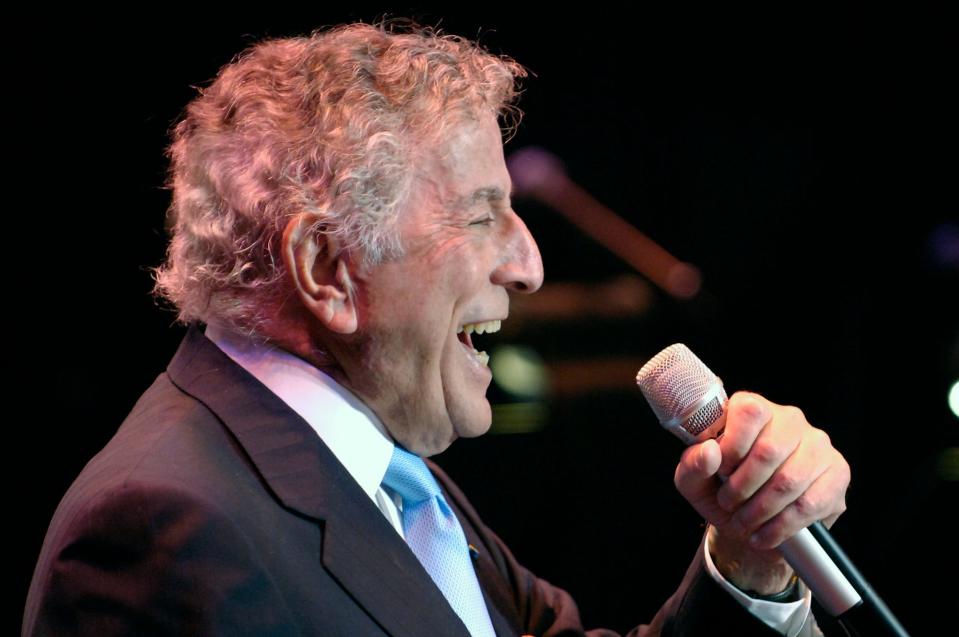
"He was American popular song," said Charlap, a West Orange resident. "His interpretations were definitive. The depth of his choices, the level of taste, the way that he told the story of the song, the nuance of his phrasing. All of it iconic, and all of it completely original and definitive."
The test of time
"The Great American Songbook" is a term Bennett is said to have coined.
By which he meant not just the hits he was identified with, like "I Left My Heart in San Francisco" and "Rags to Riches," but also the vast catalog of Jerome Kern, Cole Porter, George Gershwin, Duke Ellington and all the other great songwriters that define American pop music in its high-style heyday.
"To me, if something is good, if it has top quality, it never goes out of style," Bennett told The Record in 2015.
"For instance, as a performer, if I go to Malaysia somewhere, I'm thrilled that the audiences start singing the songs with me," he said. "They're known internationally, throughout the world. They're American songs. And the public throughout the world loves American songs."
Bennett, who had been suffering from Alzheimer's disease for seven years, died at his home in New York.
Singing the standards
Bennett not only believed in "the good old good ones," as Louis Armstrong used to call them, he convinced younger generations to embrace them, too.
The singer, who was awarded 20 Grammys during his long career, and also had a notable second calling as an artist, spent the latter years of his life teaming up with younger superstars: Sting, Bono, Lady Gaga, Barbra Streisand, k.d. lang, Elvis Costello.
"Duets" (2006) the first of several albums along these lines, was largely recorded at Bennett studios in Englewood — an old train station, retrofitted as a cutting-edge recording venue, that his producer son Daegal “Dae” Bennett ran from 2001 to 2011.
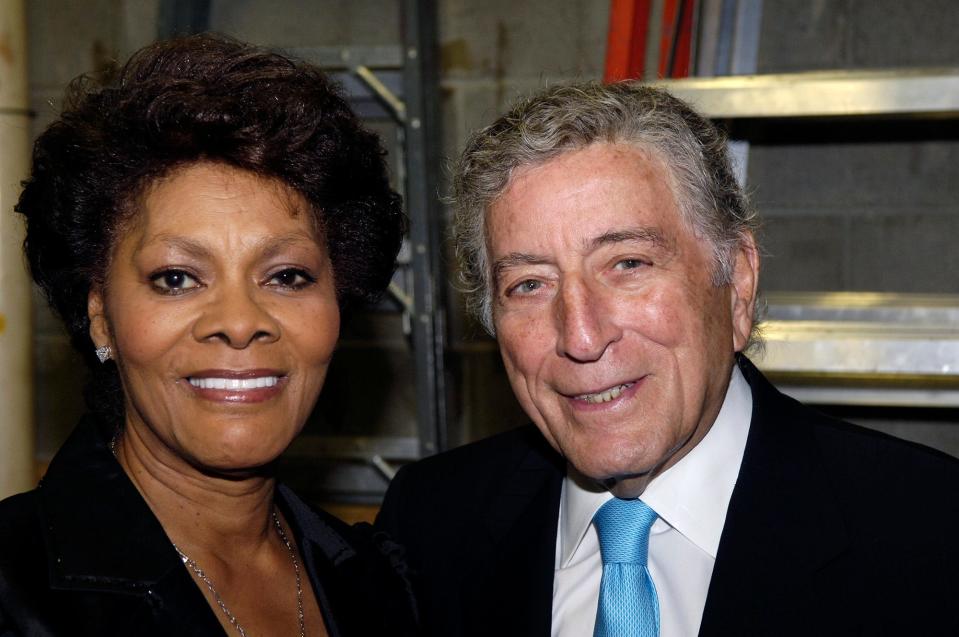
The studio was connected by fiber-optic cable to The Bergen Performing Arts Center, just down the road on North Van Brunt Street. The idea was to be able to record live shows, with all the excitement of a real audience, but in the controlled conditions of a studio. David Rodriguez, then the executive director of bergenPAC, vividly remembers some of those Englewood recording sessions with Bennett and son.
"Tony always felt that aside from the natural ambience and reverb and sound that you get in a theater, that music is meant to be performed in theaters," said Rodriguez, an Englewood resident (he's now executive producer at Newark's NJPAC).
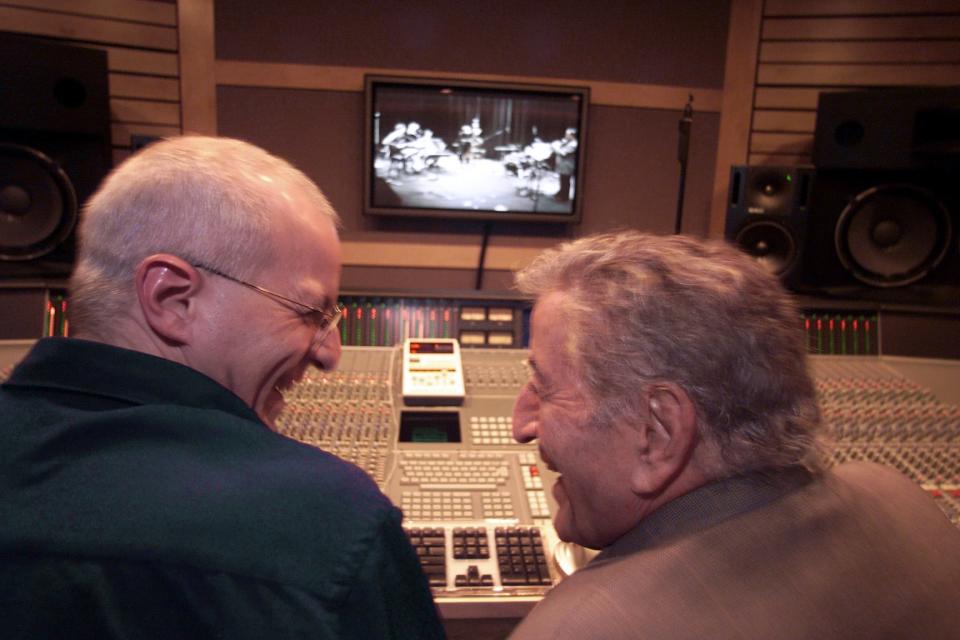
"I remember him recording a Christmas album with the Count Basie Orchestra, and recording it half a block away at the Bennett studios," Rodriguez said.
Part of what he recalls, from his work with Bennett, was his musical instincts — honed from years of recording (over 70 albums) starting in 1952.
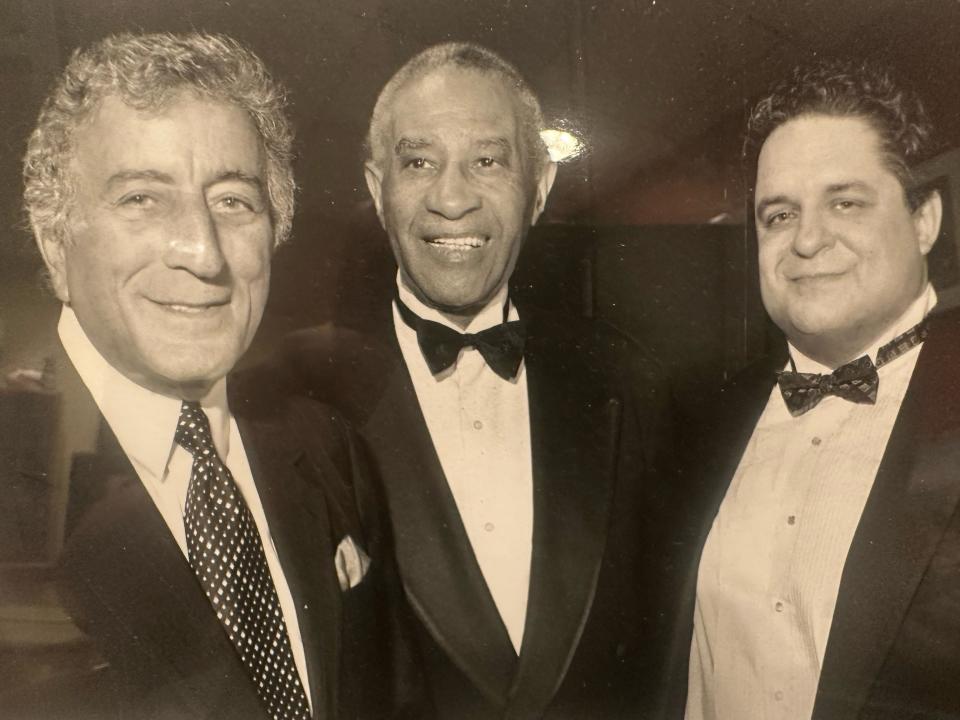
"In may cases, they would prepare, before Tony came in, more songs than would be on the album," Rodriguez said. "Generally he would come and sing it three or four times, and if it didn't make sense after the third or fourth time, it wasn't the right thing to put on the album. He knew whether it was right or not."
School of hard knocks
Bennett was born Anthony Dominick Benedetto on Aug. 3, 1926, in Astoria, Queens, and cut his musical teeth as a singing waiter in Italian restaurants.
His experiences during the Depression, and later in World War II (he trained partly at Fort Dix) moving from France to Germany and eventually helping to liberate Kaufering concentration camp, left him a committed progressive, pacifist and civil rights advocate.
"Beyond the performer, there was incredible substance," Rodriguez said.
"I remember hearing him talk about marching with Martin Luther King in Selma, with Harry Belafonte. When that wasn't a popular thing to do for a well-known performer," he said. "And he continued to be a board member at the Martin Luther King Center [in Atlanta] for decades. He was someone who kind of seemed to make the right decisions, rather than the easy ones."
He hit his stride as a recording artist with his 1952 album "Because of You" (the title track was his first hit). In an age when smooth vocalists of the Frank Sinatra stamp were the order of the day, Bennett was a natural.
Top of the world
Eventually, he sold 50 million records worldwide. “For my money, Tony Bennett is the best singer in the business," Sinatra told Life magazine in 1965.
"I think his phrasing was kind of amazing," said Sandy Josephson, editor of Jersey Jazz Magazine, published by the New Jersey Jazz Society.
"There were people who might have heard him for the first time who said he didn't have a great voice," Josephson said. "But the more they heard, they became converts, because they appreciated his integrity. He wasn't just singing the words. He was interpreting the lyrics."
Case in point, Charlap recalled: they were recording "They Didn't Believe Me," the 1914 Jerome Kern song whose casual, natural phrasing is often considered ground zero for modern popular music. Watching Bennett vocalize, he realized, the singer was literally Dedicating It To The One He Loved — his wife, Susan, standing not 10 feet away.
"He sang the entire song directly to her," Charlap said. "It was beautiful. So courageous and open and generous and romantic and deeply loving."
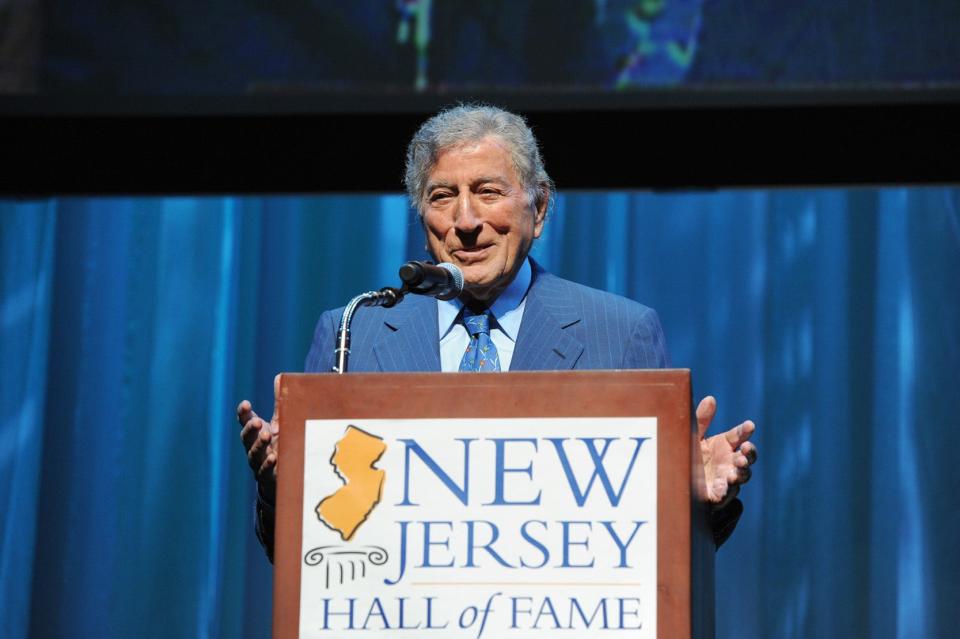
In addition to his third wife Susan, Bennett leaves behind four children: Dae; Joanna, an actress; Antonia, a singer; and Danny, who was also his father's manager.
Always a trouper
In his last years, Alzheimer's was beginning to take its toll. But until near the very end, he didn't allow it to rob the audience of what they'd come to see.
"I remember the last time he played NJPAC was 2018," said president and CEO John Schreiber, who presented Bennett numerous times, at Carnegie Hall and elsewhere.
"I was standing backstage with him and his wife, Susan, and he was standing stock still, expressionless. And when it came time to go on, and he heard 'Ladies and Gentlemen, Tony Bennett,' he sort of lit up. And his wife gave him a hug and said, 'Have a good time out there.' And he went out there and he twirled around, put his arms in the air, danced. He was totally Tony Bennett.
"And then he comes offstage and goes into the green room, and I finally got to say, 'Hello, Tony, it's so nice to see you,' and he wasn't reacting. He was well into his Alzheimer's at this point. But that didn't stop him from being perfect on stage, and being the Tony Bennett we always loved.
"That just proves to me the life-giving power of music."
This article originally appeared on NorthJersey.com: Tony Bennett, the great singer who died Friday, had Jersey ties

